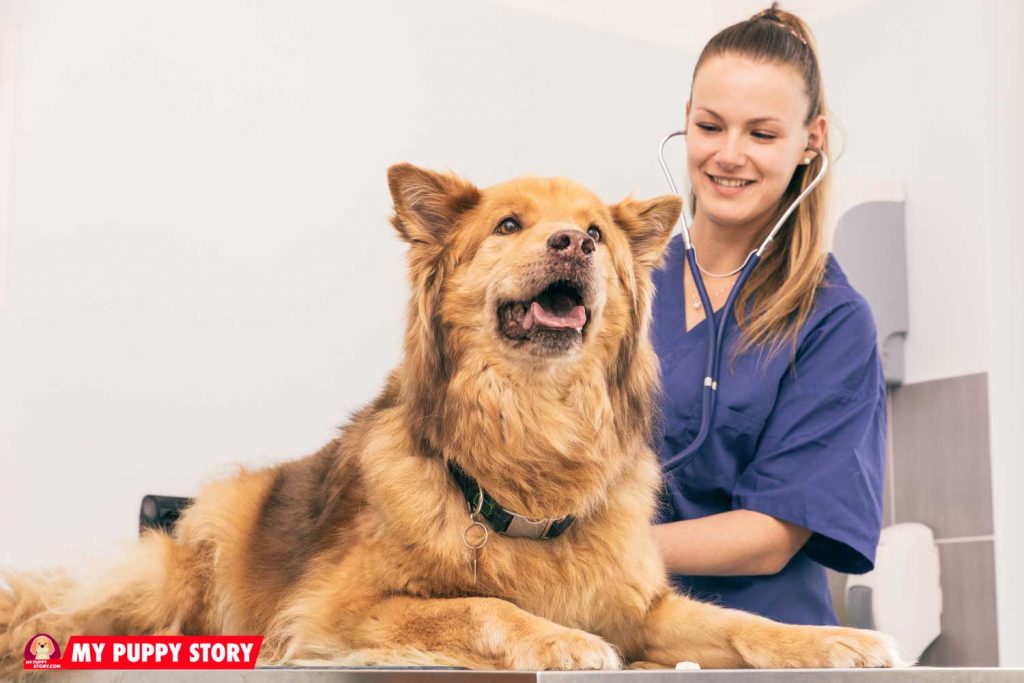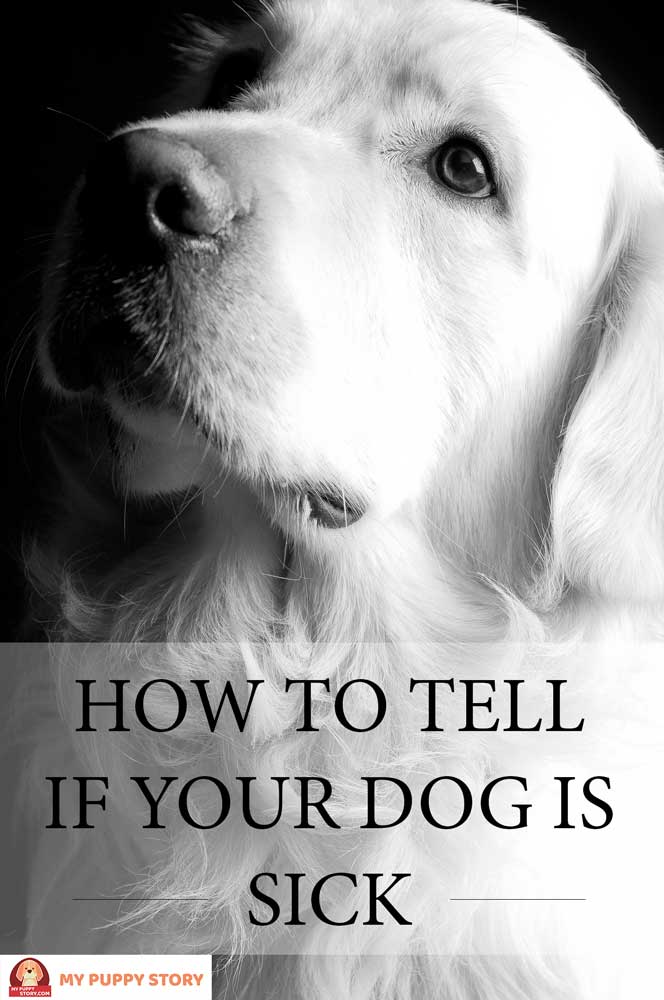
Keeping a pet requires a lot of hard work. You need to be on your toes at all times so as to make sure no harm befalls it. Most people prefer to keep dogs as pets. The fact that they are easy to train, are loyal and affectionate, and do not require a lot for their care contribute to the popular choice of dogs as pets. However, while it is true that taking care of a dog is a bit easier as compared to other animals out there, this does not imply that you throw caution to the wind.
Often, it happens that people fail to realize their dogs are unwell and thus, timely medical attention is not attained. This can prove to be detrimental and rather dangerous for the dog's health. Therefore, understanding when your dog requires medical attention is something that you need to give adequate attention to. We are going to provide you with some signs that should alert you that your dog is unwell and attention needs to be given.
A dog cannot talk and, thus, is unable to tell you when it is facing some issues. Can you imagine the feeling of helplessness that would engulf you if you are experiencing some pain and cannot do anything and cannot let anyone know about it? This is the reason that it becomes all the more important you recognize the signs of sickness in a dog so that something can be done about it.
A lot can be gauged by the body language of a dog. It is important that you know your dog. If you are up to date about the various aspects of your dog such as its behavior, appearance, and habit, it will become a whole lot feasible for you to identify when your beloved is unwell. If you seek prompt intervention at the first signs of illness, you can save quite a bit of time and money.
Let us shed some light on the ways that would tell you that your dog is sick.
It should always alert you if your dog starts exhibiting drastic changes in behavior. When your dog starts behaving in a strange manner, this should make you realize that your dog is trying to tell you that something is amiss. Perhaps your dog has become lethargic, or maybe it has become a lot more aggressive. There could also be signs of irritability. There are also chances that your dog starts to withdraw itself or maybe becomes clingy and needy.
To summarize the behavior changes that should be considered a red flag, these are the signs that you should keep an eye out for:
You might also notice stomach issues in your dog including vomiting and diarrhea. It is not uncommon for dogs to develop these issues. Perhaps, your pet consumed too much food or ate something bad. Thus, if your dog only suffers from diarrhea and vomiting, there is no reason for you to worry. However, if these complaints are registered in combination with behavior changes, you should be alerted that there is something wrong.
Just because it is common, it does not imply that vomiting is not something that you should give attention to. There are some situations in which vomiting and diarrhea should be a cause of worry for you.
Frequent episodes of vomiting that last for longer than 24 hours, repeated episodes of diarrhea which last beyond 24 hours, abdominal pain in association with vomiting and diarrhea, blood in stool, and loss of appetite are some signs that should let you know that it is time you seek the opinion of a vet.
Among the various stomach-related issues that can be faced by a dog, one that requires special attention is bloating. This is because bloating can be potentially life threatening and is found to be more common in large breed dogs. Bloating requires emergency medical intervention as any sort of delay can cost the dog its life. Distended belly, uneasiness, restlessness and dry heaves are some of the signs that can give you an indication that the dog is suffering from bloating and should prompt you to take it to the vet at the earliest.
Hence, the factors which need to be paid attention to with regards to abdominal conditions of the dog include:

The signs of a respiratory illness can either be glaringly apparent or be subtle. Hence, one would need to be rather observant to detect them. You will need to contact your vet if you notice that your dog is having a persistent cough for more than 24 hours or during its sleep. Attention should also be sought if there is persistent nasal discharge. This is particularly important if there is mucus or blood in the nasal discharge. The dog could also be experiencing wheezing, which is an alarming sign. A honking cough is also a sign that needs medical attention.
When you notice that your dog is facing some sort of difficulty in breathing, you need to contact the vet. Furthermore, if there is any other respiratory difficulty that you notice in your dog, you need to take a look at the color of its gums and tongue. If they are not pink in color and have a bluish tinge to them, consider it an emergency situation and contact a vet at the earliest.
Therefore, the signs that you should look out for when any sort of respiratory distress is noted in the dog include:
Another important aspect that you need to be observant about is related to the bowel habits of the dog. You should consult a vet if you notice there is an increased frequency of urine or if the dog has any trouble passing urine or feces. Dogs are usually housetrained with a lot of ease, and it is very seldom that they break the habit. Therefore, if your dog is involved in a urinary accident more than once, you should think that something is amiss. The same is true for fecal accidents in a properly trained dog.
Therefore, you should consult a vet if you notice that your dog is experiencing:
More than anything, it is the physical appearance that you would notice the most. You spend hours with your dog. You play with it and look forward to spending your time with it. You are the one who knows it best. Therefore, you can be the best judge to decide if there is something wrong with the dog.
You need to be alerted if there are any lumps or bumps on the body of your dog. Any kind of changes in the already present lumps and bumps should be tested by a vet. Lumps that bleed are another cause of worry that should not be ignored.
Sudden weight loss and weight gains are also things that should not be ignored. When we say sudden weight loss or gain, you need to understand that they have to be unexplained. For instance, if there is a noticeable increase in the appetite of your dog or if it has reduced its activity, it should come as no surprise that it is gaining weight. Similarly, perhaps your dog found someone or something new to play with and is indulging in rigorous activity for long hours. This would explain the weight loss. Therefore, only the weight gain or weight loss that cannot be explained and is drastic should prompt you to take your dog to a vet.
Rashes, hair loss, and itching are some of the other signs that you need to be alerted about.
Thus, to summarize, the signs related to the appearance of the dog that should let you know it is time you get your dog checked by a vet include:
Most sicknesses are accompanied by fever. If you are suspicious that your dog has a fever, you should check it by means of a thermometer. If you notice the signs of illnesses that have been described above and the thermometer tells you that the dog has a temperature more than 103°F, you should get the opinion of a vet at the earliest.
It is prudent to mention that a temperature of more than 104.5°F is a sign of heat stroke, which can be potentially life-threatening and requires emergency intervention. If your dog has a high-grade fever, it is advisable to administer cooling measures while taking the dog to a vet at the earliest.
 A dog cannot be expected to tell you when it is in pain. However, there are some signs that would let you know about it. Sometimes, the dog might let out a yelp when you touch the area that is hurting, but more often than not, the dog would not let you know about its suffering. Dogs seldom face the need to voice out their pain. Therefore, you will need to look out for some signs that would let you know about the pain that your dog is experiencing.
A dog cannot be expected to tell you when it is in pain. However, there are some signs that would let you know about it. Sometimes, the dog might let out a yelp when you touch the area that is hurting, but more often than not, the dog would not let you know about its suffering. Dogs seldom face the need to voice out their pain. Therefore, you will need to look out for some signs that would let you know about the pain that your dog is experiencing.
Keep in mind that using pain medications that have not been prescribed to your dog can prove to be dangerous. Do not opt for the over-the-counter medications that we use. They are found to be toxic to dogs. Hence, if you think that your dog is in pain, you need to seek the opinion of a vet and take measures accordingly. Don't try to solve things on your own or you might end up worsening the situation.
The signs that you should look out for include:
If your dog is involved in any sort of accident, you need to make sure that you seek a vet’s opinion immediately.
Lastly, some signs pertaining to the nervous system need to be looked out for and should let you know that a trip to the vet is now in order. These include:
Any of these signs should be dealt with by taking a trip to the vet. It does not matter if they stop after a while. Their presence is an indication that there is something wrong with the dog that requires attention. Prolonging the matter would only make it worse and would make things all the more difficult for your beloved dog. Therefore, when it comes to neurological signs, it is not the duration but the signs that matter the most.
When you decide to keep a pet, you basically undertake the responsibility of catering to its every requirement. It becomes your duty to make sure that the pet is taken care of in the best possible manner.
One tends to spend quite a bit of time with their pet. As time passes, you start understanding what each gesture of your pet means and thus, it is you alone who can tell when your dog starts to behave differently or start exhibiting traits that were not known to it before. It is only the owner who can tell when the dog is going through some sort of trouble since they are the only one who knows the dog and can realize when it is doing something out of the ordinary.
When it comes to matters of health, no chances should be taken. You need to make sure that the dog is taken care of at all times and there are no threats to its health looming over it. Therefore, this is something in which no compromises should be made. You would not like to be responsible for any harm that incurs upon your beloved pet, so you need to make sure you are observant at all times and the dog does not have to suffer.
A dog is considered to be a man's best friend, but the thing about this friend is that it is unable to tell you about the pain it is experiencing. Therefore, it is up to you to recognize it and to get the help that it needs. Failure to do so implies that you have failed the responsibility you undertook. Therefore, ensure that before you decide to keep a pet, you are aware of the extent of the responsibility you have undertaken and know about the kind of times that lie ahead. Make sure you come to a decision after careful consideration because once you keep a pet, there is no turning back. You will be the one responsible for its health and for catering to all its requirements. It is about the life of another being, so negligence would prove to be rather costly. If you feel like this is too much responsibility, don't put another life at risk and drop your plans of getting a dog.
At the end of the day, the comfort and health of your dog should matter to you the most. Do not become so busy in your life that you fail to notice your beloved pet is going through some sort of trouble that requires your attention.
People often opt for self-medication in the hope that it is some minor illness that would go away with time. While there is always a chance that it is nothing serious, in the end, you need to be sure and this would only be possible if you seek the opinion of a professional. Hence, take your dog to a vet if you notice any abnormality, irrespective of how minor it appears to you. This would ensure that in case of any problem, your dog gets timely treatment and would prevent the problem from getting bigger.

I'm glad you mentioned hesitancy to move as a sign that your dog may be in pain. My dog usually loves to run around and play, but all week he has seemed lethargic and hesitant to get out of bed. I will definitely look for a good vet in the area so we can figure out what's going on.
Thanks for explaining that you should speak with a vet if your dog has a temperature of more than 103 degrees. My golden retriever has been very low-energy for the past two days. I will check her temperature and bring her to the vet if necessary.
Thank you for telling me not to dismiss my dog's vomiting and diarrhea issues if it includes a huge change in his behavior. My dog occasionally pukes especially when he ate too much dog food, but his manners had stayed the same. This time it was different, and he refused to be held by anyone in the house although it's the complete opposite of his loving personality. I'll follow your advice and take him to a vet since he might need emergency medical intervention.